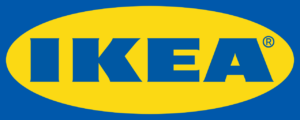IKEA fights for sustainability not only with its furniture, but also with its food
IKEA wants to become a climate-positive company by 2030, but for this it needs to produce more plant-based food.

In 2022, approximately 520 million guests tried IKEA’s food offering, which the furniture giant is constantly developing, with a focus on plant-based options that help it achieve its sustainability goals. IKEA recently published its 2022 Sustainability Report, in which it provides insight into the process at the end of which, by 2030, it can become a climate-positive company.
One of the main areas of IKEA’s sustainability plan is food production
In the food category, the company wants to achieve its climate goal by switching 50% of its bistro food selection to plant-based by 2025. It also aims to ensure that 80% of packaged meals are also plant-based within this time. IKEA estimates its carbon footprint at 25.8 million tons of CO2 in 2022, a 5 percent reduction from 2021 and a 12 percent reduction from the 2016 baseline. While this improvement can be attributed in part to factors such as reduced production and energy efficiency, the increased distribution of plant-based foods has also contributed to the reduction of the carbon footprint.
IKEA’s plant-based meals also serve sustainability, without compromise
IKEA has also been offering vegan food for some time. In 2015, it launched the first plant-based version of plant-based Swedish meatballs, which has since been slightly redesigned. Launched in 2020, the ‘vegetable ball’ – marketed as HUVUDROLL – was developed with sustainability in mind, producing just 4% of the carbon footprint of IKEA’s traditional Swedish meatball. The furniture giant’s food offer has also been expanded with additional new products, such as veggie hot dogs. In addition, the furniture chain pays a lot of attention to alternative alternatives to milk and milk products in the food it offers, of course, paying attention to ensure that this does not affect the flavors preferred by consumers.
Related news
dm welcomes customers with stable prices and a superb price-value ratio
🎧 Hallgasd a cikket: Lejátszás Szünet Folytatás Leállítás Nyelv: Auto…
Read more >Related news
It isn’t about Rossmann this time
🎧 Hallgasd a cikket: Lejátszás Szünet Folytatás Leállítás Nyelv: Auto…
Read more >II. Green Gastronomy – Marketing Communication Workshop organized by the MMSZ HoReCa and Green Section
🎧 Hallgasd a cikket: Lejátszás Szünet Folytatás Leállítás Nyelv: Auto…
Read more >







